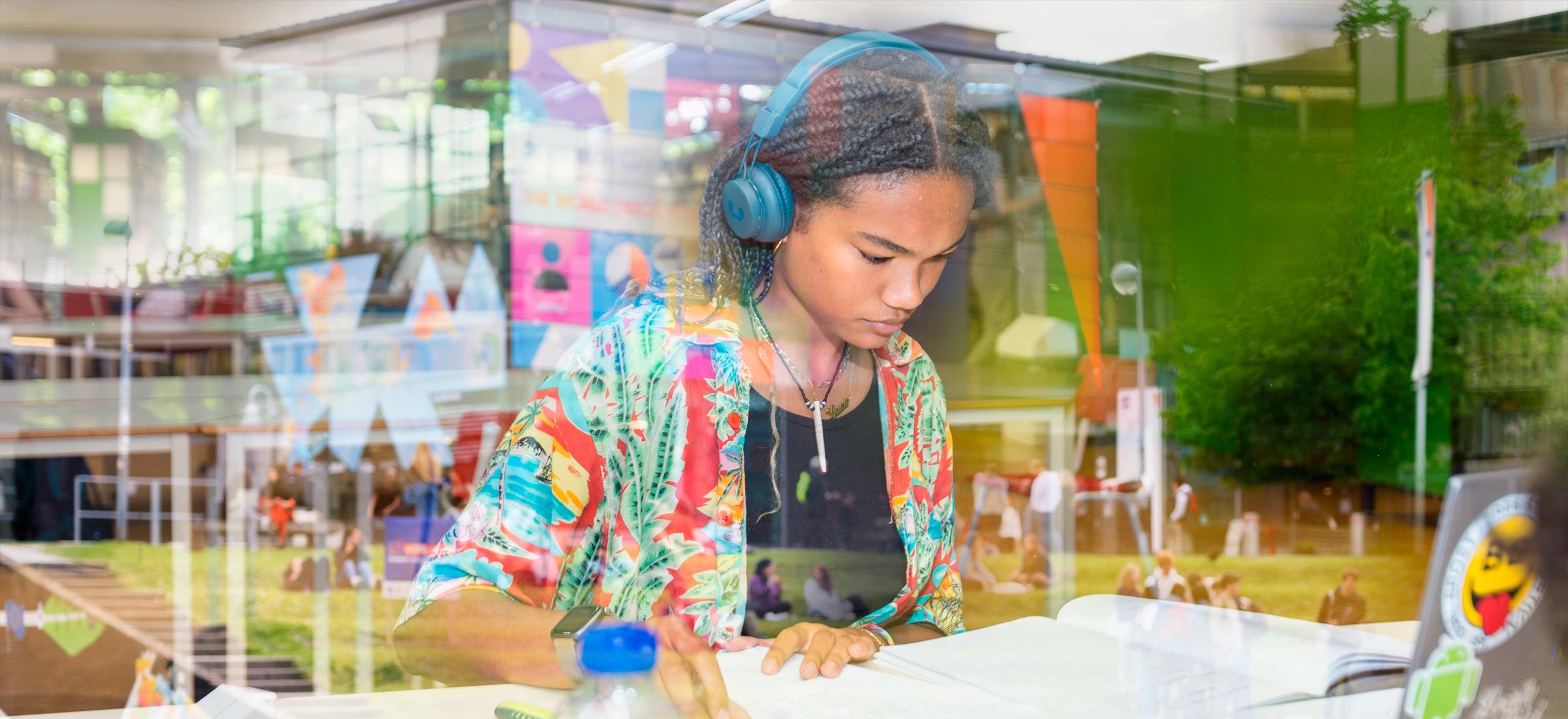
The complexity of Brussels
This interdisciplinary micro-credential enriches your view of Brussels as a melting pot of languages and cultures, but also as a political actor. We provide you with scientific insights and guide you in carrying out independent assignments concerning the (multilingual) Brussels city culture.
Goals and setup
We look at the formation of the political and institutional architecture in and around Brussels as a small world city, with an emphasis on the linguistic realities and challenges facing the capital region. The daily language use of Brussels residents today is complex and does not coincide with the institutional division between Dutch-speakers and French-speakers.
We also go into the city and introduce you to the literary Brussels. The Belgian capital has played a significant role in literature in the past two centuries, just as it does today, both as a place where writers live and as a city that is experienced and described in literature.
Finally, this credential includes a vocational component. During a practical internship of 120 hours, you work under supervision for a heritage institution or media platform on a project in which a certain aspect of the layered political and linguistic identity of Brussels is central.
Courses
Global City Region Brussels (6 ECTS, 2nd semester)
Linguistic and Literary Studies in Brussels (3 ECTS, 1st and 2nd semester)
Stage Geschiedenis (6 ECTS, 1st and 2nd semester)
Details
Admission requirements
There are no admission requirements to start this micro-credential.
Maximum number of participants
There is no limit on the number of participants allowed to enrol.
1 academic year
Two courses take place during the entire academic year (1st and 2nd semester). The third course takes place during the 2nd semester. Language of instruction for two courses is English. The internship is instructed in Dutch. Please send an e-mail to microcredentials@vub.be if you want to take this course in English.
15 ECTS
One ECTS-credit equates to roughly 25 to 30 hours of study, from lessons to completing a project or studying independently.
Campus Etterbeek
Courses are organised on the VUB Main Campus located in Etterbeek.
Day or evening courses
You can take this micro-credential in day or evening courses.
What is a Micro-credential?
Micro-credentials are small, academic programmes that focus on specific subjects and competences. They consist of one or more courses or course parts taught in a Bachelor or Master programme at the university. Usually, they are taught for a few hours spread over one semester or one academic year. They are literally micro-courses.
If you pass the micro-credential, you receive a certificate proving that you have acquired the competences. These are official credits. This is where micro-credentials differ from other programmes, such as study days or trainings. The credits and competences you obtain are recognised throughout your career and can lead to exemptions from future programmes, for example, even at other institutions.
Micro-credentials are important for lifelong learning. After all, in our rapidly changing society, it is essential that everyone keeps working to renew their own competences. Micro-credentials are blocks that you can stack and combine throughout your life and career to further direct your own pathway. There are several advantages to taking micro-credentials. Since they are short, specific courses, you only learn what you need to upskill or specialise.
In addition, the certificate guarantees your acquired competences and the credits are often recognised abroad. They are a great asset on your CV.
Costs
The tuition fee consist of a fixed amount and a variable amount
The fixed amount is an administrative fee paid once per academic year. The variable amount is a specific fee per credit or ECTS that you enrol for.
Enrolment
Start your online application here
Look under 'continuing education' to select your micro-credential.
Check the application deadlines here
Need help?
Teaching methods
The VUB is committed to blended learning, a combination of online and on-campus lessons. Therefore, students need not necessarily be on campus if they do not have to be, but we still believe in the added value of physical teaching moments.
Classes are usually taught for a few hours spread over one semester or one academic year. You can always check the class timetable, where you can see if a course is online, on campus or taught through recorded lessons. It is best to view the timetables for each individual course.
Any questions?
microcredentials@vub.be

The new training offer of micro-credentials was developed and announced with the support of the European Union.